Con Watch: Looking for Love in All the Wrong Places
Steve Weisman is a lawyer, college professor, author, and one of the country’s leading experts in cybersecurity, identity theft, and scams. See Steve’s other Con Watch articles.
Looking for love and romance are basic human drives, and criminals take advantage of this with numerous romance scams. The FTC’s most reported scam is when a con artist pretends to be in love with the intended victim and then asks for money for an emergency. Americans lost $143 million to these scams last year, and the figure is likely much higher because many victims fail to report the crime out of embarrassment. These scams are a serious problem. Not only have many victims lost their life savings, but on occasion, victims have even committed suicide.
The FBI recently reported that romance scams increased 70 percent in the past year. While anyone can be a victim, the elderly, women, and people who have been widowed are particular vulnerable.
Romance scams are not limited to the United States, but occur worldwide. Recent figures from Hong Kong show the incidents there have increased dramatically in the past year. Last October, a joint operation of Hong Kong, Malaysian, and Singaporean law enforcement arrested 52 people involved in an international online romance scam in which millions of dollars were stolen from their victims. And in August, 80 people, mostly Nigerian nationals, were charged in a 252-count indictment alleging that they operated a variety of online scams — most notably business email and romance scams — throughout the world.
In addition to international crime rings and unsavory individuals, one must beware of legitimate dating apps as well. The FTC recently sued online dating service Match Group, Inc., which owns and operates not just Match.com, but also Tinder, OK Cupid, PlentyOfFish, and other dating sites. While the FTC alleges a wide variety of improper actions by Match, the one that is most noteworthy is the allegation that Match allows users to create a free profile, but prohibits users from responding to messages without upgrading their membership to a paid subscription.
According to the FTC, when nonsubscribers received likes, emails, or instant messages from people seeking to get in touch, Match would email ads urging them to purchase a paid subscription in order to see the messages. The big problem is that, according to the FTC, millions of the contacts that generate Match’s “You caught his eye” notices came from accounts that Match had already determined were likely to be fraudulent accounts seeking to perpetrate romance scams, phishing scams, and extortion scams. According to the FTC, between 2013 and 2016, more than half of the instant messages and favorites that Match customers received came from accounts that Match already had identified as being fraudulent.
How to Protect Yourself
The most important thing to remember is to always be skeptical of anyone who quickly professes their love without ever having met you in person, and early into the relationship asks you to wire money to assist them with a wide range of phony emergencies.
Here are a few other red flags to help identify an online romance scam.
- Someone asks you to leave the dating service and go “offline.” This is a common hallmark of a romance scam.
- Their photo looks too professional and the person looks like a model. Often a scammer’s profile picture is stolen from a modeling website. You can check on the legitimacy of photographs by seeing if they have been used elsewhere by doing a reverse image search. If you are suspicious, ask them for additional candid photos. If the profile picture is a fake, they are unlikely to have others. You can also ask them to send a photo of themselves holding up a sign with their name on it, of a place that you designate, or holding today’s newspaper.
- They claim to be in the military. While many real military personnel do use dating websites, they are a favorite disguise for scammers. The fact that many military personnel are overseas makes a good cover story for why it’s difficult to meet in person. Also, the general high regard Americans have toward people serving in the military may incline a victim to be more trusting.
- They use particular phrases. For instance, “Remember that distance or color does not matter, but love matters a lot in life” is a phrase that turns up in many romance scam emails.
- They use bad spelling and grammar. Many of the romance scammers claim to be Americans, but are lying about who and where they are. Often, their primary language is not English.
- They may ask you to use a webcam, but will not use one themselves.
To all the romantics out there, try to always be a bit skeptical.
Featured image: Shutterstock
Cartoons: Little Brothers
Want even more laughs? Subscribe to the magazine for cartoons, art, inspiring stories, fiction, humor, and features from our archives.
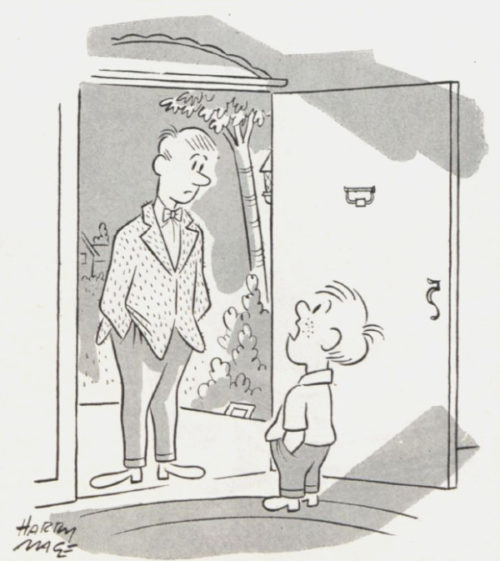
Harry Mace
June 2, 1951
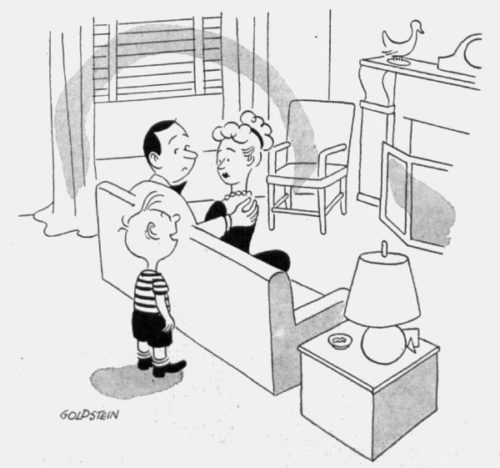
Goldstein
April 21, 1951
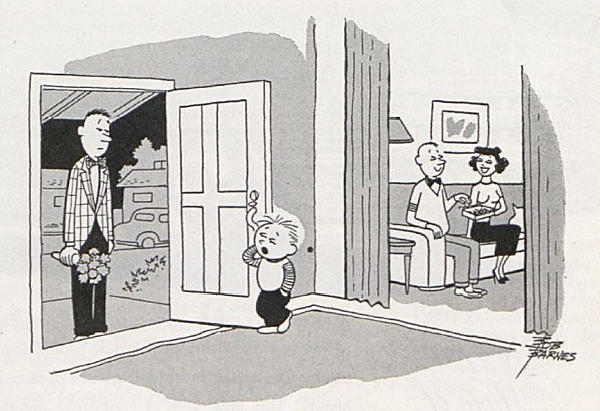
Bob Barnes
April 21, 1951
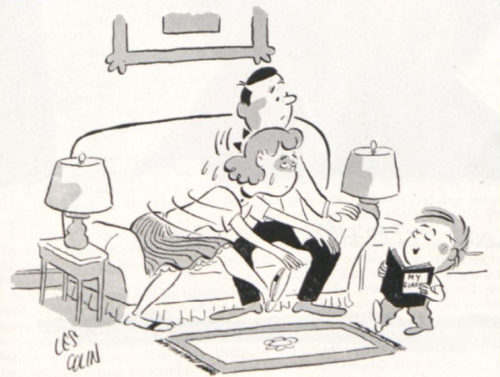
Les Colin
April 7, 1951
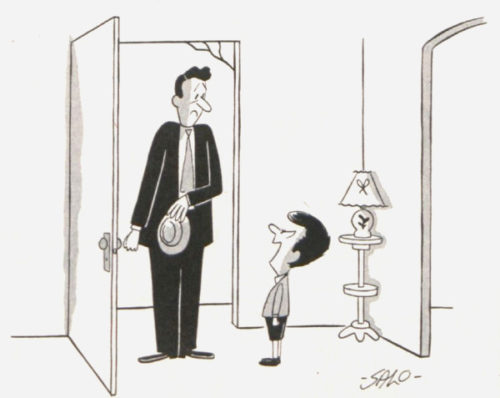
Salo
March 24, 1951
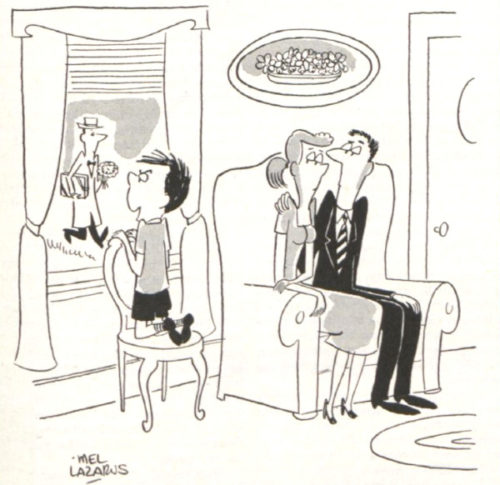
Mel Lazarus
March 15, 1952
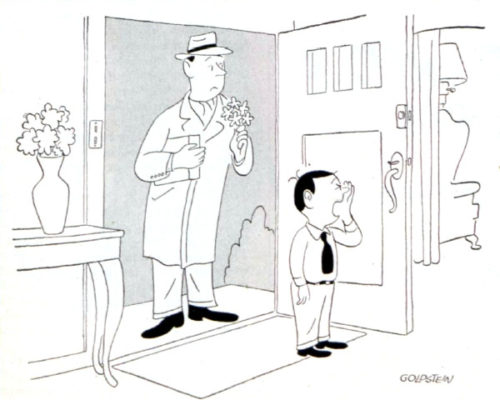
Goldstein
January 19, 1952
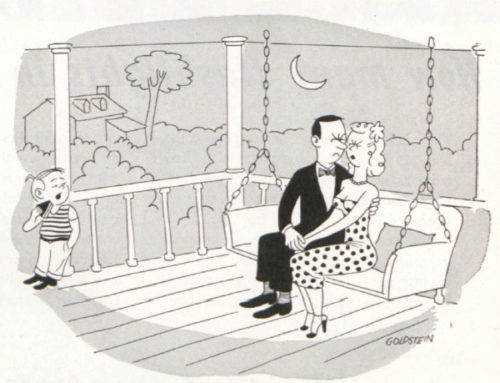
Goldstein
June 9, 1951
Want even more laughs? Subscribe to the magazine for cartoons, art, inspiring stories, fiction, humor, and features from our archives.
Cartoons: Dating Don’ts
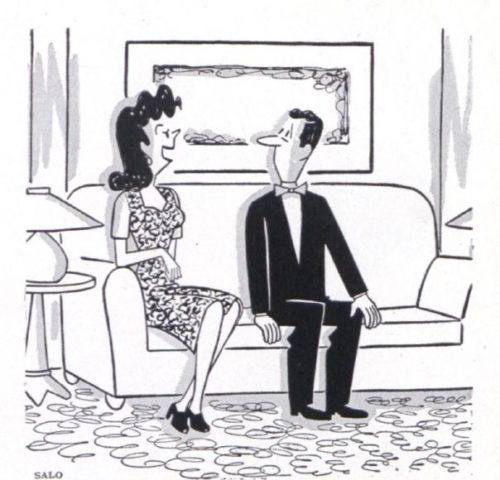
Salo
February 12, 1949
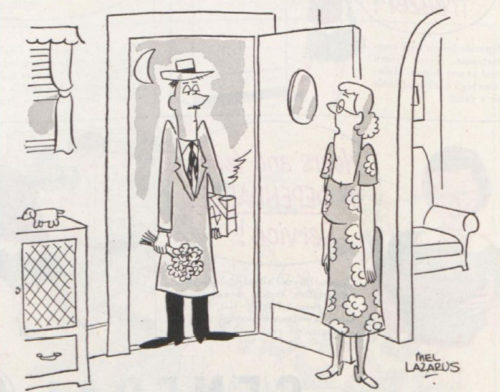
Mel Lazarus
February 10, 1951
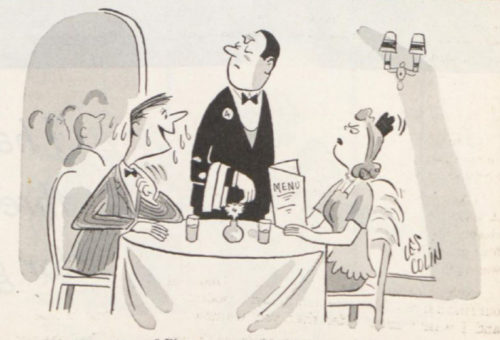
Les Colin
February 11, 1950
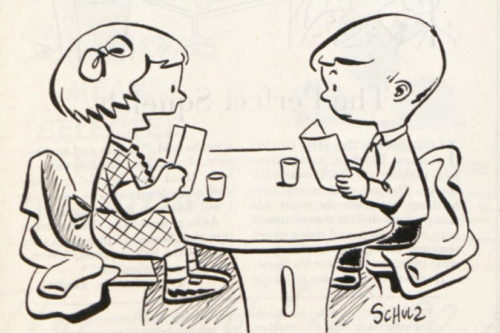
Charles Schulz
February 19, 1949
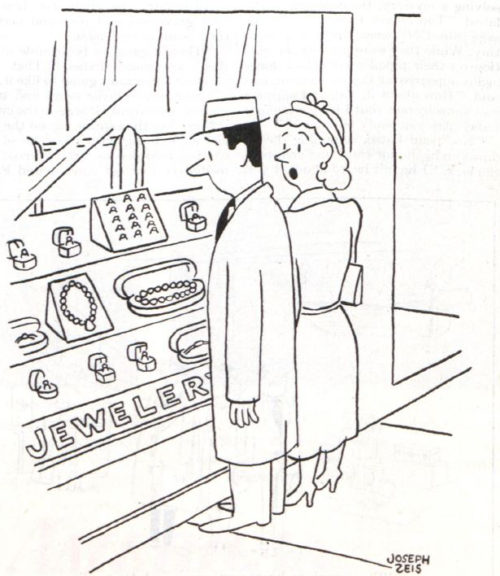
Joseph Zeis
February 14, 1953
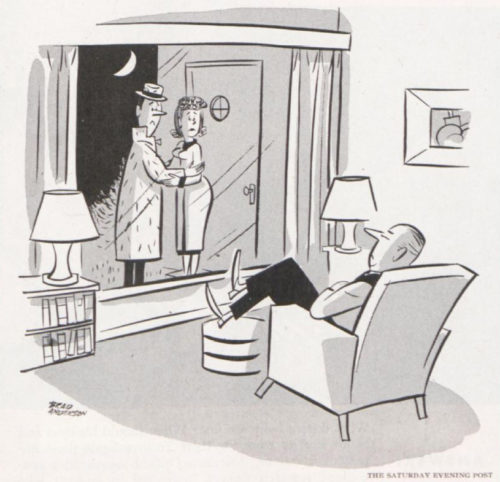
February 16, 1952
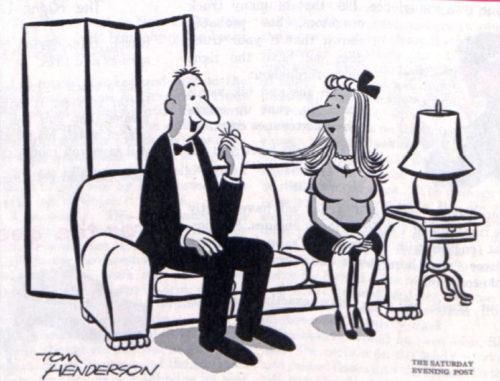
Tom Henderson
February 12, 1949
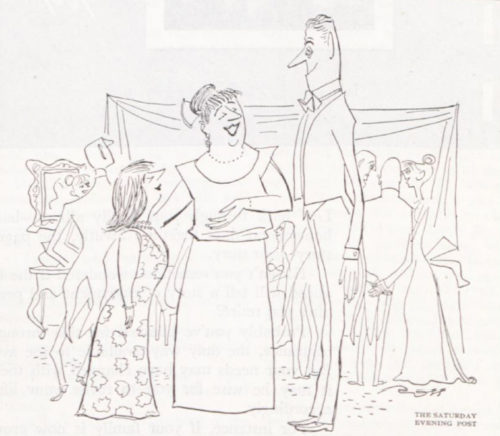
Ross
February 7, 1948
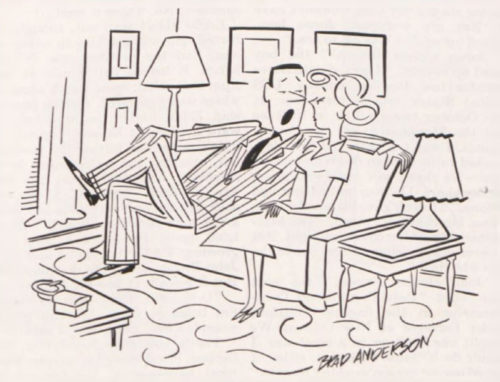
Brad Anderson
February 13, 1954